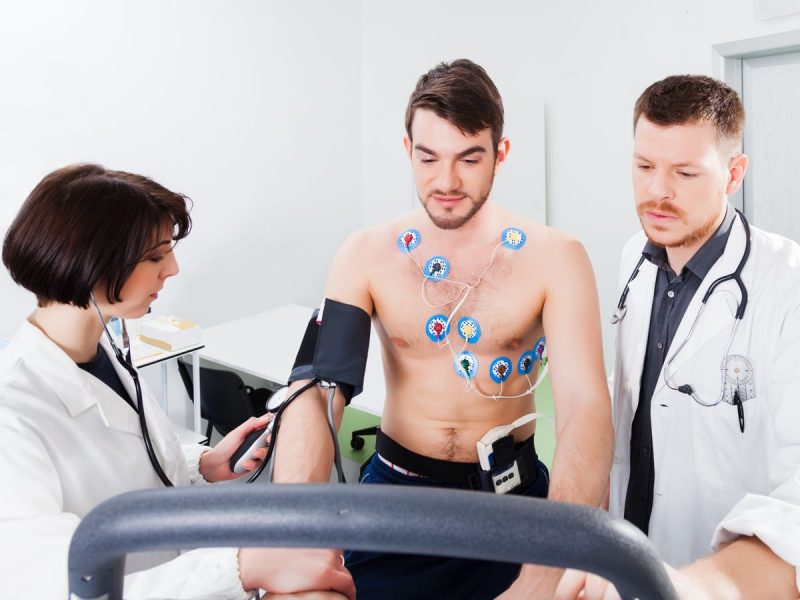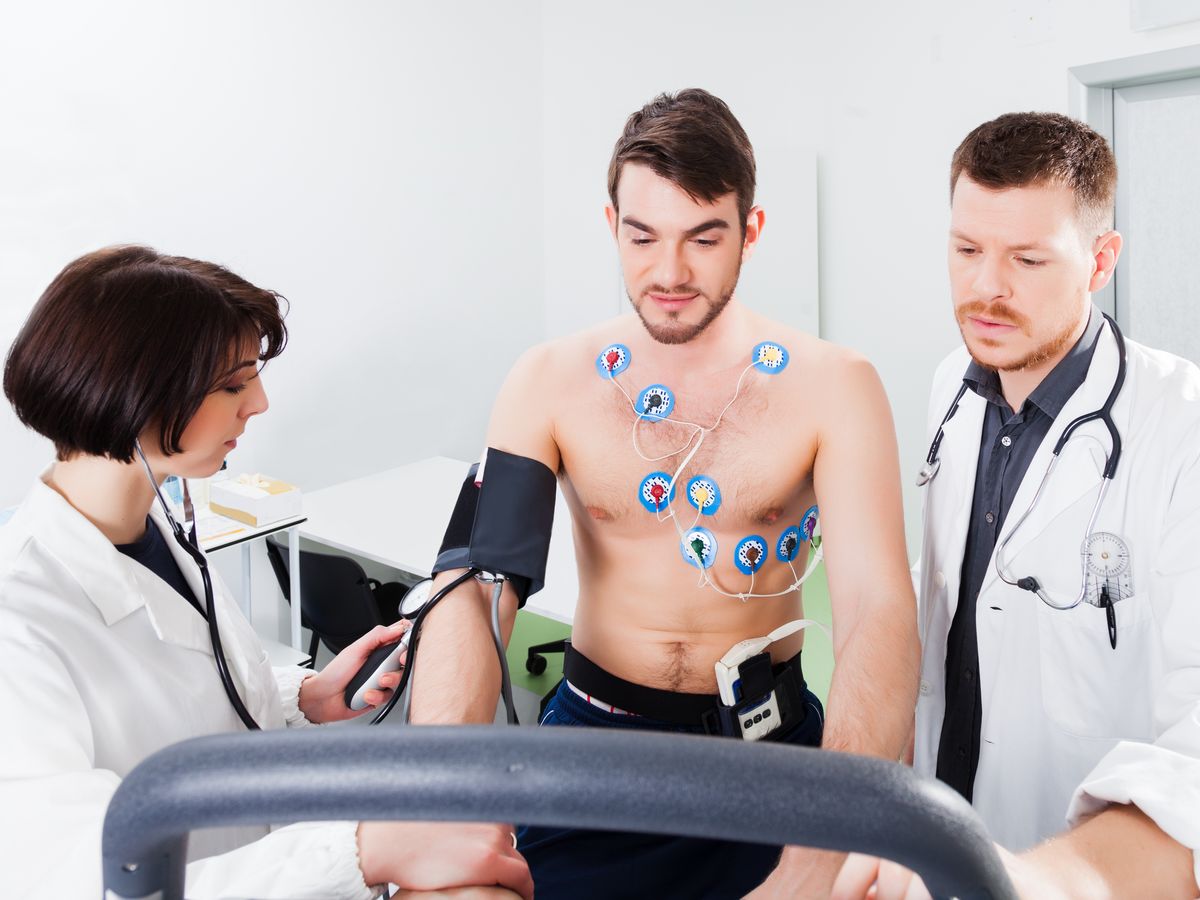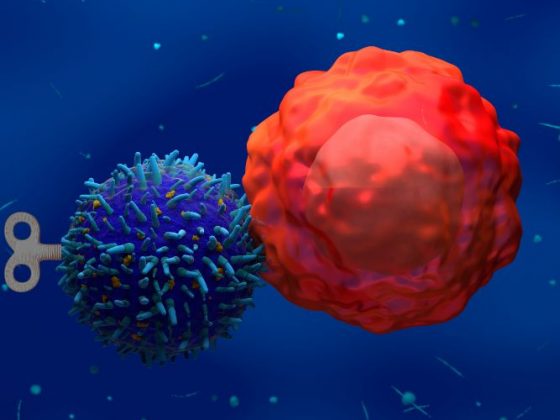Higher levels of cardiorespiratory fitness may reduce the incidence and mortality of specific cancers in men. The Swedish male cohort study, published online in JAMA Open Network, June 29, found that higher levels of cardiorespiratory fitness were associated with a lower risk of developing colon and lung cancer and a lower risk of death from colon, lung and prostate cancer.
“These findings highlight that higher cardiorespiratory fitness is not only important for lower cardiovascular disease risk, which is often communicated, but also for lower cancer risk and cancer mortality in men,” Elin Ekblom-Bak, the lead author tells Cancerworld. “People should be supported to find approaches to improve their cardiorespiratory fitness in ways that feel best for them and avoid shaming the individual.”
Although previous studies have investigated associations between physical activity and cancer risk, few have explored the influence of cardiorespiratory fitness. Even though physical activity is a behaviour involving skeletal muscle movement, the investigators reasoned that it is often self-reported, leading to an inherent bias of over estimation. Cardiorespiratory fitness, a reflection of the ability of the heart and cardiovascular system to deliver oxygen to the working muscles, provides a much more objective measure. Low or unhealthy cardiorespiratory fitness has been shown to be a strong, independent predictor of cardiovascular disease and all-cause mortality in adults.
For the current prospective cohort study, Ekblom-Bak and colleagues from the Swedish School of Sport and Health Sciences, Stockholm, analysed data on 177,709 Swedish men, aged from 18 to 75 years, who between October 1982 and December 2019 completed an occupational health assessment. The investigators examined cardiorespiratory fitness – defined as maximal oxygen consumption (mL/min/kg) – using a submaximal cycle ergometer test, together with incidence of, and mortality due to, prostate, colon and lung cancers. “Because of the size of the sample, we were able to look at both the relationships between cardiorespiratory fitness and not only the risk of three of the most common cancers in men, but also the risk of dying from these cancers, and were also able to examine if the age the person was tested influenced the relationships,” explains Ekblom-Bak.
The Swedish National Patient Registry and National Cause of Death Registry were used to retrieve data on first-time cancer-specific events and mortality. Analyses were conducted at an individual level by linking the study data to the unique Swedish personal identity number. Outcomes from the three higher cardiorespiratory fitness groups (low, >25–35 mL/min/kg; moderate, >35–45; and high, >45) were compared with those from the very low cardiorespiratory fitness group (25 mL/min/kg or less). Models were adjusted for age and the year they performed the occupational health assessment.
The study identified 1,918 cases of prostate cancer, 499 cases of colon cancer, and 283 cases of lung cancer diagnosed in the study population, over a mean follow-up of 9.6 years. Furthermore, 207 lung cancer deaths, 152 colon cancer deaths and 141 prostate cancer deaths were recorded.
Higher levels of cardiorespiratory fitness appeared to be associated with significantly lower risk for colon cancer (HR=0.98; 95%CI 0.96–0.98), and lung cancer (HR=0.98; 95%CI 0.96–0.99), but with a higher risk for prostate cancer (HR=1.01; 95%CI 1–1.01).
Results also showed an association between higher levels of cardiorespiratory fitness and lower risk for death among those with colon cancer (HR=0.98; 95%CI 0.96–1.00), lung cancer (HR=0.97; 95%CI 0.95–0.99), and prostate cancer (HR=0.95; 95%CI 0.93–0.97).
An association between cardiorespiratory fitness and lung cancer incidence (HR=0.99) and death (HR=0.99) was only evident among men aged 60 and older.
In a theoretical calculation of prevented cases, the authors found avoiding having very low levels of cardiorespiratory fitness could prevent 4% to 8% of all colon cancer cases, 4% of all deaths from lung cancer, and 4% to 19% of deaths from prostate cancer.
“People are understandably less aware of their fitness levels than they are of how physically active they are. Health assessments could include simple submaximum cycle ergometer tests (as used in the present study) both in general practice or even in more specialised care to gain a better understanding of their fitness levels,”says Ekblom-Bak.
Addressing the seemingly ‘counterintuitive’ association between prostate cancer incidence and cardiorespiratory fitness, the authors suggest this may be influenced by a tendency for men with higher cardiorespiratory fitness to better attend opportunistic prostate cancer screening programmes. Lifestyle factors, they add, may also play less of a role in the incidence of prostate cancer due to its high heritability.
The fact that the association between cardiorespiratory fitness and lung cancer incidence and death was only evident in those aged 60 and older demonstrates, adds Ekblom-Bak, the importance of taking into consideration the age of people being tested.
The team are now undertaking a similar analysis of common cancers in women and, with a large number of men returning for multiple health assessments, they are taking advantage of the unique opportunity to understand how changes in cardiorespiratory fitness are associated with cancer risk. “A person’s cardiorespiratory fitness mostly commonly changes over a lifetime, so we are also currently running analyses to better understand a life course approach, which should provide a more nuanced understanding of the importance of cardiorespiratory fitness for cancer risk,” says Ekblom-Bak. “As we learn more about the role of fitness we can work towards developing more specific and prescriptive physical activity recommendations.”












